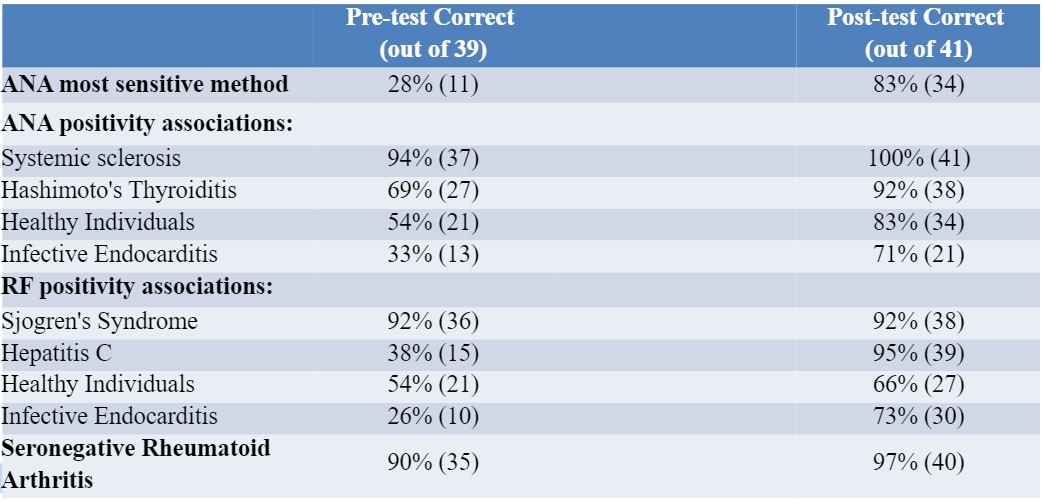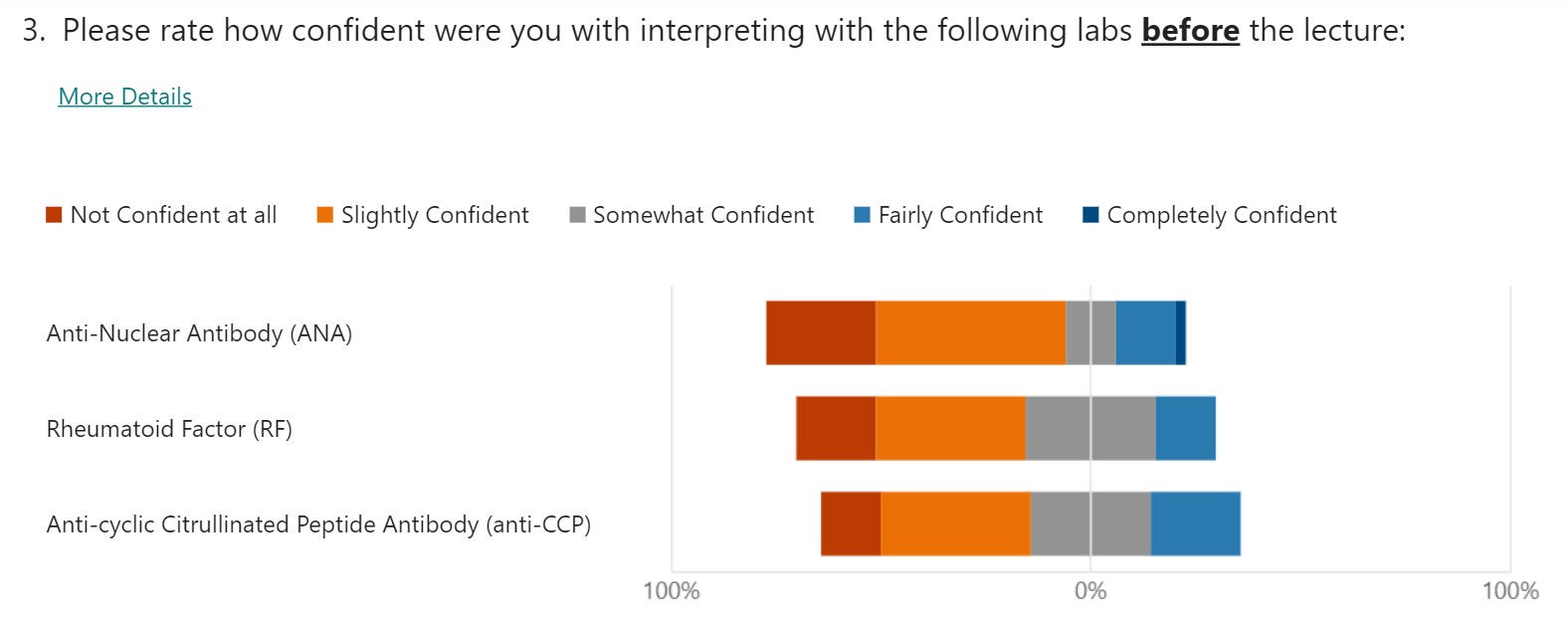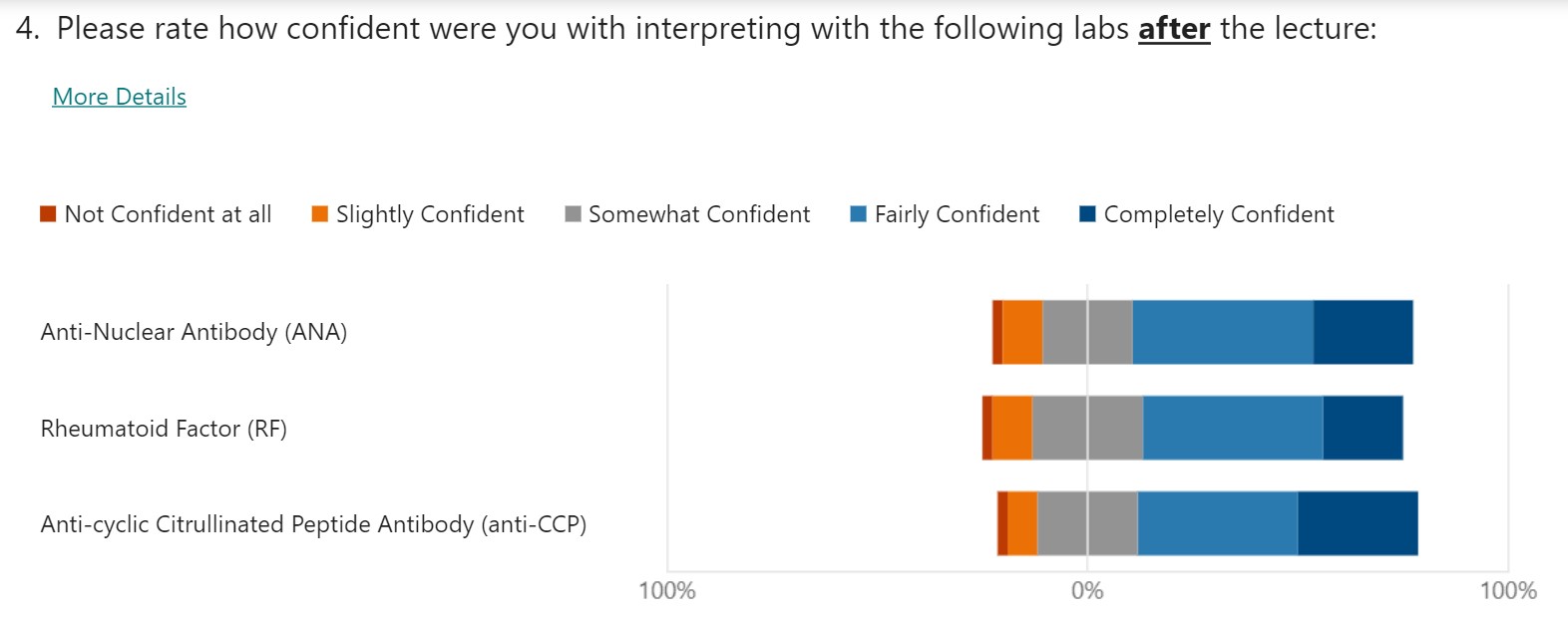Session Information
Session Type: Poster Session B
Session Time: 10:30AM-12:30PM
Background/Purpose: A growing availability crisis in Rheumatology requires consideration of steps and best practices that might be employed to meet high demand. Besides increasing the number of rheumatologists serving our communities, we can make conscious efforts to provide better rheumatologic teaching.
Methods: A 50-minute session was created that addresses the use and interpretation of anti-nuclear antibody (ANA) testing, rheumatoid factor (RF), and anti-cyclic citrullinated peptide antibodies (anti-CCP) in the setting of general practice to residency programs. This session was presented during grand rounds at two different programs. There were approximately 42 participants ranging from medical students to attendings, but primarily residents. It was composed mainly of small group work with large group discussion and some structured lecture components. There were many though provoking questions from participants during the session, which lead to better and more interactive learning. There was a pre-test, post-test, and survey that were distributed during the session. A follow-up survey was distributed 3 months after the completion of the sessions.
Results: The results of this data showed a clear increase in correct answers in most categories, particularly the most sensitive method to order an ANA as well as a broader understanding of false positives with ANA/RF (all results listed in attached table). There was also a great subjective increase in understanding of these lab values and what they entail clinically. 95% of participants listed the session as instrumental to changing their clinical practice, as well as a great subjective increase in confidence as seen in the graph (attached). This confidence seemed to carry through with the follow-up survey data. Though limited, the responses that were gathered showed that most of the participants still felt they better understood judicious ordering of the above tests as well as accurate interpretation.
Conclusion: It is difficult to find ways to effectively teach and is especially important when the time allotted is limited. This method compared to a traditional didactic session seems to demonstrate higher efficacy when compared to a standard passive lecture. There is a common misunderstanding of the lab work that’s ordered in autoimmune disease as well as what to do with the results. This session revealed both a subjective and objective increase in the participant’s understanding, with the hope of increasing rheumatologic lab knowledge moving forward as well as practice habits in the future. Improved understanding of rheumatologic topics in within general medicine improves the quality of care and promotes best practice.
To cite this abstract in AMA style:
Schluentz M, Kiwalkar S. What Is an ANA and Why Should I Care? Strategies to Increase Understanding of Basic Rheumatologic Labs Within Medical Education [abstract]. Arthritis Rheumatol. 2024; 76 (suppl 9). https://acrabstracts.org/abstract/what-is-an-ana-and-why-should-i-care-strategies-to-increase-understanding-of-basic-rheumatologic-labs-within-medical-education/. Accessed .« Back to ACR Convergence 2024
ACR Meeting Abstracts - https://acrabstracts.org/abstract/what-is-an-ana-and-why-should-i-care-strategies-to-increase-understanding-of-basic-rheumatologic-labs-within-medical-education/



